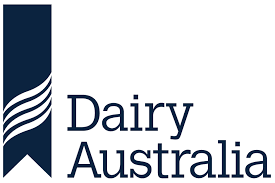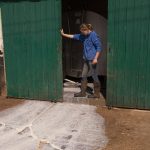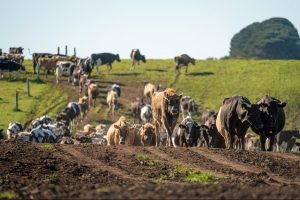
Over half of dairy farmers nationally use irrigation and farms in some regions rely on irrigated water. ‘Smart irrigation’ can provide big efficiency benefits after years of dry conditions and high water costs – the project aims to increase average farmer profits by $20,000-$40,000 annually.
As part of its contribution to the Smarter Irrigation for Profit phase II project, the dairy industry has established 17 research and learning sites in dairy regions in Western Australia, South Australia, Victoria, Tasmania and New South Wales, including the subtropical border area with Queensland. Dairy Australia is helping to manage many of these sites.
Dairy Australia Managing Director, David Nation, said that the collaboration of five Rural Research and Development Corporations, five universities and four governmental organisations underlined the importance of the project for Australian agriculture.
“Smarter Irrigation for Profit is one of Australian agriculture’s major collaborative investments – it will be a game changer for many dairy farmers who rely on irrigation. Efficient water use is vital to sustain dairy farming in one of the most variable climates on earth,” said Dr. Nation.
Dairy Australia is investing $1.7 million in the project, part of an overall dairy investment worth $7.7 million made possible by the support of Agriculture Victoria, the Tasmanian Institute of Agriculture and University of Southern Queensland. The total investment by all partners in the Smarter Irrigation for Profit project is $22 million, maximising the combined funding of levy paying farmers.
Group Manager of Farm Profit and Capability, Peter Johnson, said Dairy Australia’s participation in the project’s first phase had shown big opportunities for dairy farmers to reduce costs by producing more feed from the same amount of water or less through better timing and scheduling of irrigation.
“The technologies we are trialling through our investment in Smarter Irrigation for Profit can really help farmers bottom lines, by reducing water and energy use and costs, maximising pasture growth, reducing labour intensity through automation and through improved utilisation of data.
“The sites involving local farms aim to increase farm profit for 500 dairy farmers through adoption of technologies and practices that improve water productivity and irrigation performance. This knowledge can then be made available to farmers across the country,” Mr Johnson said.
Smarter Irrigation for Profit phase II is supported by funding from the Australian Government Department of Agriculture, Water and the Environment as part of its Rural R&D for Profit program. It is led by the Cotton Research and Development Corporation in partnership Dairy Australia, Grains Research and Development Corporation, AgriFutures Australia, Sugar Research Australia and nine research organisations. It builds on the project’s successful first phase launched in 2015.



















